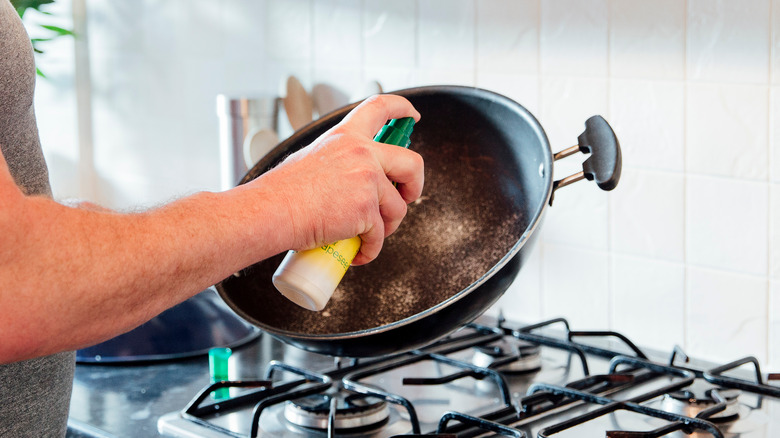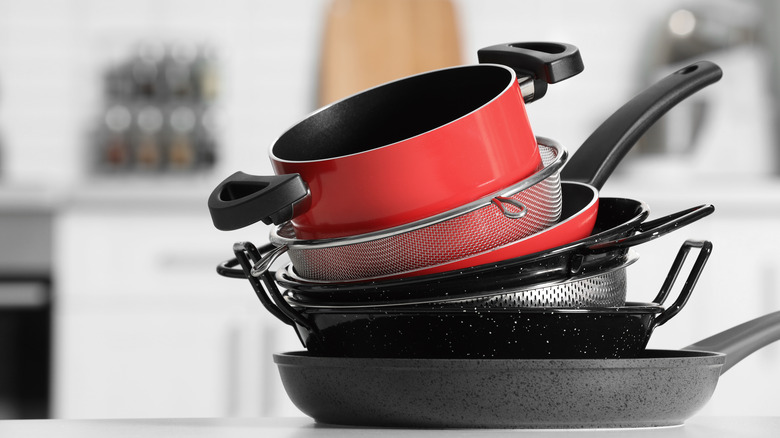Why You Shouldn't Use Cooking Spray On Nonstick Cookware
Nonstick cookware has been a staple in U.S. kitchens since the 1960s (via APS Physics). Pots and pans with nonstick coatings are perfect for sticky dishes like pancakes, eggs, and fish, and make for easy clean up. While it is cast iron pans that usually have a reputation for needing lots of TLC, nonstick surfaces need proper care as well if they're going to continue working optimally.
According to Real Simple, one of the most common mistakes among chefs at home make is to use cooking sprays like PAM in their nonstick cookware. It makes sense logically to add a little extra resistance to a nonstick cooking surface, but depending on the product used, it may do more harm than good. Some cooking sprays contain an ingredient called lecithin. This ingredient is an emulsifier that will slowly build up on the surface of nonstick pans, and is very difficult to remove. It essentially covers up the polytetrafluoroethylene (PTFE), or Teflon, which is the coating that helps foods slide right out of the pan. The lecithin builds up residually over time and will result in plenty of clingy foods and tedious clean ups.
How to care for nonstick cookware
It's best to use a small amount of oil in nonstick pans instead of cooking sprays to add flavor, keep food from sticking, and preserve a nonstick surface (via Real Simple). Southern Living recommends purchasing an oil spray mister that will allow the same ease of use as a cooking spray without damaging nonstick surfaces. Simply fill the bottle with your preferred cooking oil, and spray a light coating onto the pan as you would any cooking spray.
Southern Living also recommends against putting nonstick cookware in the dishwasher. Instead, they should be washed by hand with a soft sponge, cool water, and gentle detergent. They say that as long as the pan is receiving proper care, cleaning these surfaces by hand should be incredibly easy. Just remember to let the pan cool completely before washing it, or the dramatic shift in temperature can cause it to warp.
It's also best to avoid abrasive cleaners or metal utensils with nonstick surfaces as well. They can cause scratches that are dangerous on some older pans, but will also degrade the cooking surface. High heat or heating empty pans can also cause the cooking surface to degrade. It's best to use these surfaces at medium temperatures, and they should never be preheated without any food in the pan.

